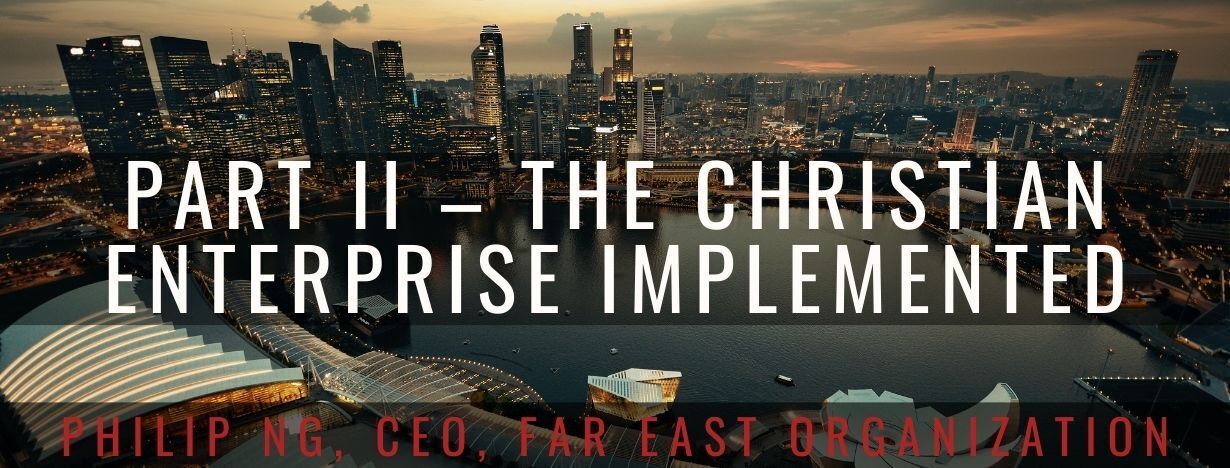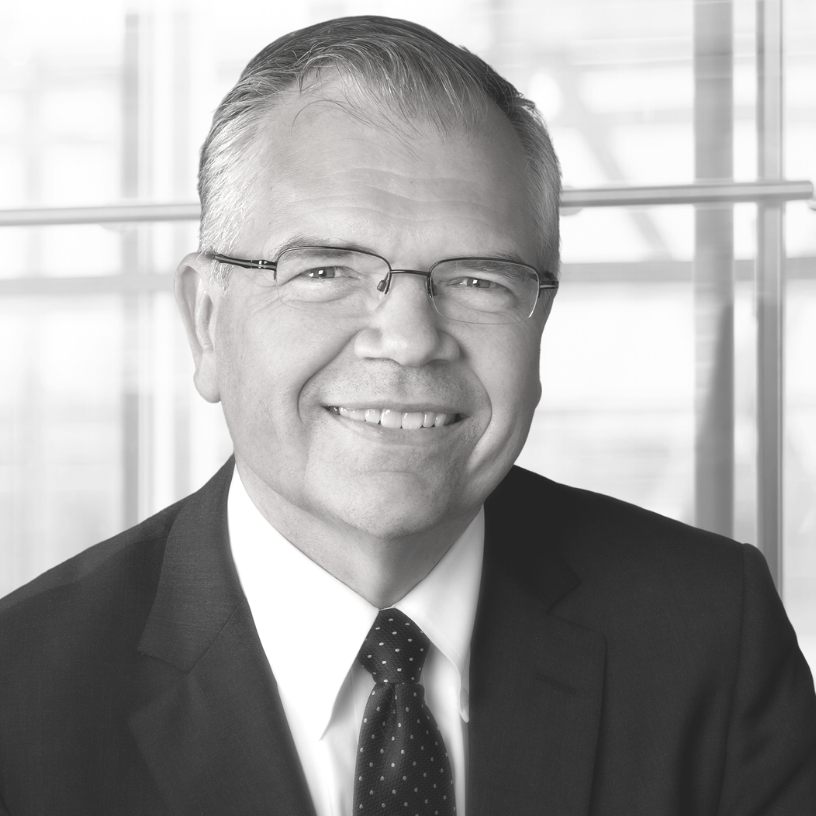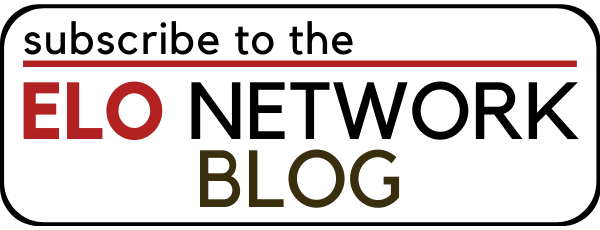
Part I: The Concept of a Christian Enterprise described the decision of Philip Ng, CEO, to have Far East Organization (FEO) be a “Christian enterprise.” How can this be practically implemented? Part of FEO’s efforts to instill the values of a Christian enterprise is to have international speakers address their leadership team in consultation with the Biblical Graduate School of Theology. As part of that programme, I delivered a presentation on “Ethical Challenges for the Christian Enterprise.” There were 60 or so leaders in attendance with an energetic discussion period afterward, reflecting a desire to grapple with the nuances of building a Christian Enterprise.
Part of what I mentioned during my presentation is that what FEO is doing is very unique--making a bold stand to adhere to a prescribed set of values. I pointed out that people often like to give advice—but do not think it is actually important to follow it themselves. Arnold Schwarzenegger is an example. He is not only a high-profile actor and politician but a very successful entrepreneur. His autobiography has an intriguing comment: “I want to be an inspiration, not a role model” (see my previous blog post on Arnold). This came at the end of his mea culpa regarding his marital infidelity with his maid. In other words, or, take the case of Phil Knight of Nike, who shamelessly recounts his ethical shortcomings—he’s lied, cheated, etc. (see my previous blog post on Phil). All in a day’s work, apparently. Like Arnold, he too would not raise the bar by espousing a set of values by which he himself lives by! So, to take a stand and assert that a company–like FEO–will strive to live up to a certain set of values is a significant undertaking.
How then do Christians in business try to reflect their faith in their actions? Business leaders will vary in terms of their understanding as to what then is a Christian approach in relation to an organization? There are effective ways to have an impact, but they vary. For example, Rich DeVos, co-founder of Amway, says that because he is so open about his faith that people ask him if Amway is a Christian organization. He states in Simply Rich: A Memoir (Howard Books 2014), “Amway has a lot of wonderful Christian people in it, but a company cannot be Christian, only people can be Christian.” [218]
Philip Ng takes a different approach. He has declared his company to be a “Christian Enterprise.” He has stuck his neck out to put his principles into practice and accept the inevitable challenges and criticisms that will come his way. While there are different ways to practice one’s faith in the marketplace, this is a compelling one. It serves as a great example to Christian business leaders worldwide.
How does one implement the principles behind a Christian Enterprise? Philip Ng encourages the approach of a Christian enterprise to permeate his leadership team: “As leaders in the organization, we must as Salt, flavour and add zest to the workplace, to the things that we do. We must think about how to make work more meaningful for our people. As Salt, we are also meant to preserve the values of the Organization and of the units we are working in.”
A Christian enterprise needs to be “values-based and to operate with values.” Philip Ng notes that “At the end of the day, Far East Organization wants to be a beacon that reflects the hope that is in our Lord Jesus Christ.”
How will the culture be driven? Philip Ng explains, “…I urge the Christians and believers in our midst to step forth in this journey. Those who are not believers will observe us. In fact, they will judge us. Are we committed? Are we for real? Therefore, the believers among us have a greater role to play in this journey. If you want to win over your colleagues, you must step forth and show that it is possible to achieve fulfillment.”
Philip Ng notes that “I think for the Christians, it is a call, it is a challenge. But as I have said, even if you are not a believer, we have already articulated our values as a Christian Enterprise, and as stewards and officers who are appointed at Far East, you must also do your part to align. Even if you are not a believer, we expect that of you.” He also notes that for non-Christians “…a Christian Enterprise must give you choices, it must allow you to exercise your will. I think we fall on a very basic point in the sense that you all must be the ones to want to do it.”
Philip Ng explains, “We are process-driven and values-driven, and we know that the ends do not justify the means. Meaning that the means are more important. How we do it, how we serve, how we engage our customers, how we deal with our business partners, the ‘how’ is very important. It’s not about whether we are going to win or not. It is not about how much we win, but it is about how we do it, how we serve, with a heart, with values. I am very confident that if we are values- and process-driven, values- and process-driven if we did all this, and we thought about it, we will fulfill well, we will fulfill well.”
The bottom line is that creating and nurturing a Christian enterprise will take time and effort. In a large organization, it is not easy to change the culture quickly. FEO is, however, methodically laying the foundation to make a difference. It is building its spiritual capital within the organization–and this is one reason why Philip Ng and FEO are having an impact far beyond Singapore.
Read Part I: The Concept of a Christian Enterprise>>
 Richard (Rick) J. Goossen works at Nicola Wealth, Canada’s fastest-growing independent wealth management firm. He is the Founder and Chair of the Entrepreneurial Leaders Organization (“ELO”). He is also the founder and director of the Entrepreneurial Leaders Institute at Wycliffe Hall, University of Oxford where he teaches an annual executive education course titled the “Entrepreneurial Leadership Programme”.
Richard (Rick) J. Goossen works at Nicola Wealth, Canada’s fastest-growing independent wealth management firm. He is the Founder and Chair of the Entrepreneurial Leaders Organization (“ELO”). He is also the founder and director of the Entrepreneurial Leaders Institute at Wycliffe Hall, University of Oxford where he teaches an annual executive education course titled the “Entrepreneurial Leadership Programme”.
This blog was originally posted on October 5th, 2017
